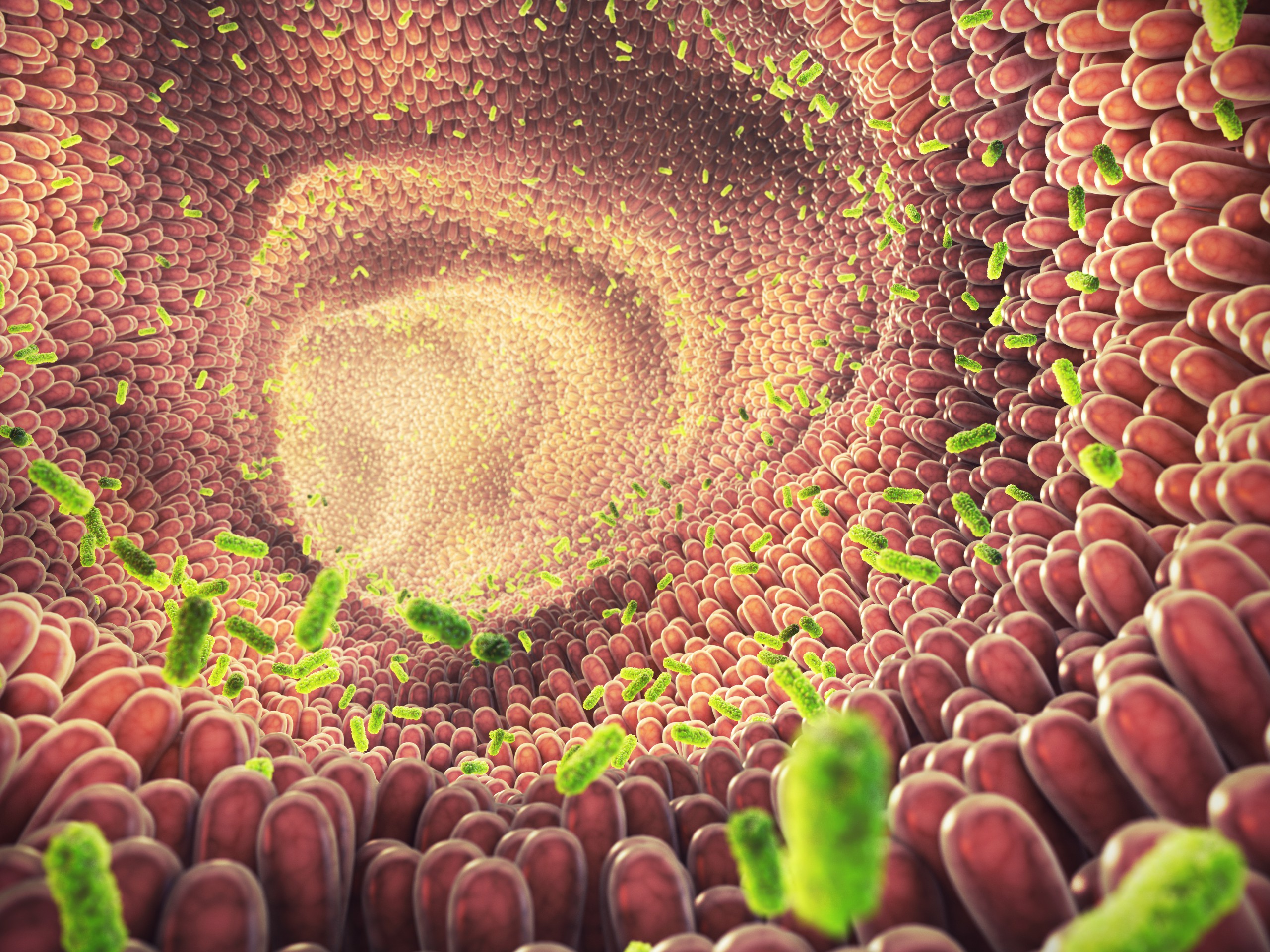the health of the gut
The gut plays a pivotal role in our health. Consequently, the promotion of holistic health places great emphasis on the health of the gut – as does Sarah Müllhaupt’s naturopathic practice.
The fascinating world of the intestinal system
If the human intestine were to be laid out, it would cover an area of more than 500 m2 – that’s the size of two tennis courts! The surfaces of the lungs (100 m2) and skin (2 m2) are tiny in comparison.
It is not surprising, therefore, that 99% of the microorganisms living in the human body reside in the large intestine. This intestinal microbiome in turn consists of 100 trillion bacteria, which, by the way, can weigh a total of up to 2 kg.
Together with the immune cells of the intestinal mucosa, which make up 80% of the body's entire defence cells, the intestinal microbiome plays a decisive role in determining our health.

The relevance of the gut for health
Countless scientific studies have confirmed the health-relevant effects and interrelationships of the gut microbiome and the intestinal mucosa (e.g. Schaub et al. 2022, Schiefelhagen 2022).
On the one hand, it has been shown that an impaired or not intact gut microbiome and mucosa can lead to various diseases and disorders. Examples include anxiety disorders and depression, obesity/overweight, autoimmunity (e.g. multiple sclerosis, rheumatoid arthritis), allergies, irritable bowel syndrome, and digestive disorders.
On the other hand, an unimpaired, intact gut microbiome contributes positively to health by performing the following tasks and functions:
- Defence against pathogens
- Maintenance and "training" of the immune system
- Conversion of sugar into fatty acids for energy production
- Support of nutrient absorption (e.g. calcium and iron)
- Production of B vitamins and serotonin (positively influences our emotions; 90% of serotonin is produced in the intestine)
- Maintenance and buffering of the pH value (acid-base balance)
- Reduction of the probability of outbreaks (gene modulation) of genetically predisposed diseases
Promoting gut health
At Sarah Müllhaupt's naturopathic practice in Zurich, gut health plays a key role in both diagnostics and therapy.
A first important step is a molecular genetic microbiome analysis of the stool. This involves measuring the diversity and ratio of "good" and "bad" bacteria and determining the bacterial excretory substances that can positively or negatively influence health. In addition, the intestinal mucosa is analysed against various laboratory parameters (e.g. calprotectin, sIgA, zonulin).
Valuable conclusions about the current state of the microbiome and the intestinal mucosa can be drawn from the analysis results. However, the focus is on the personal consultation – virtually or on-site at the practice – and clarification through a series of questions regarding nutrition, sleeping habits, bowel movements and energy balance.
Finally, recommendations for therapy are tailored to the individual on the basis of the lab results and consultation:
- Prescription of pre and/or probiotics
- Formulation of food supplements (e.g. vitamins, minerals)
- Naturopathic nutritional advice (e.g. fermented foods, everyday healthy cooking)
- Composition of herbal tinctures and tea mixtures
- Manual therapies (e.g. reflexology, cupping)

You can visit Sarah Müllhaupt and discover more about her naturopathic practice at this year's Soil to Soul event on September 17, and at Hiltl Zurich at the beginning of October.
A huge thanks to Sarah Müllhaupt!

